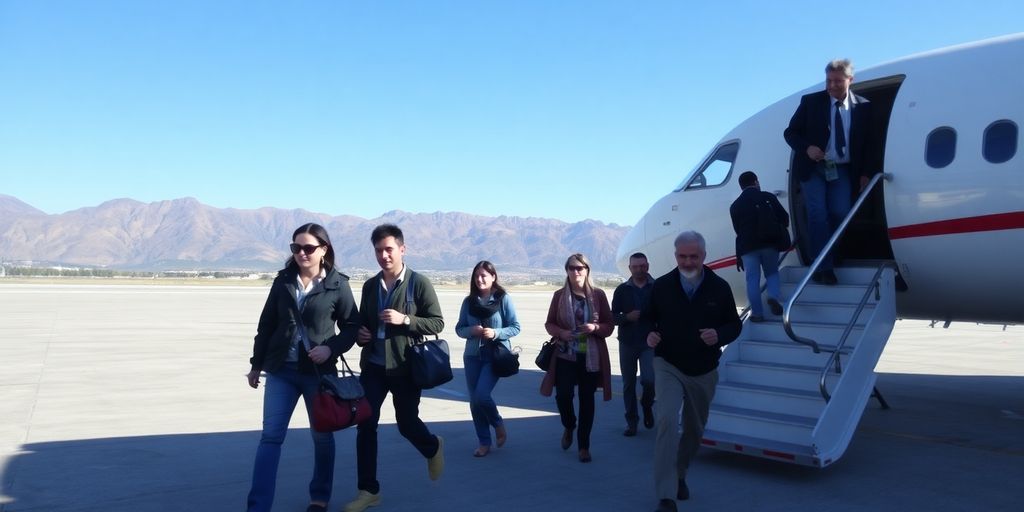Kosovo has agreed to a request from the United States to temporarily host up to 50 migrants per year who have been deported from the U.S. but are not citizens of Kosovo. This agreement, confirmed by both U.S. and Kosovar officials, is part of a broader U.S. effort to find third countries to accept deportees, particularly those whose home countries are unwilling to take them back.
Kosovo’s Role in U.S. Deportation Strategy
Kosovo’s decision to accept these deportees highlights its strong alliance with the United States. This move is seen as a demonstration of shared values and a commitment to international cooperation, particularly as Kosovo seeks further integration into Euro-Atlantic institutions.
- Temporary Relocation: The agreement stipulates that up to 50 individuals annually will be temporarily relocated to Kosovo, with the ultimate goal of facilitating their safe return to their countries of origin.
- Selection Criteria: Kosovo will have the opportunity to select individuals from a proposed pool, provided they meet specific criteria related to the rule of law and public order.
- Precedent for Hosting: This is not Kosovo’s first agreement to host individuals from other nations. Following the U.S. withdrawal from Afghanistan in 2021, Kosovo hosted Afghan evacuees requiring additional vetting. Additionally, Kosovo has a deal to house 300 prison inmates from Denmark starting in 2027 and has expressed interest in receiving deportees from the United Kingdom.
U.S. Administration’s Broader Deportation Efforts
The agreement with Kosovo is part of an aggressive and expanding strategy by the U.S. administration to deport migrants who are not their citizens. This initiative has seen the U.S. approach nations across Asia, Africa, and Latin America for similar deals.
- Previous Agreements: The U.S. has already deported hundreds of Asian and African migrants to Costa Rica and Panama. More than 200 Venezuelans accused of gang ties were sent to El Salvador.
- Challenged Efforts: Attempts to deport migrants to conflict-ridden Libya and South Sudan have been stymied by U.S. courts.
- Increased Pressure: The U.S. Supreme Court’s decision to allow the revocation of temporary legal status for hundreds of thousands of migrants from Venezuela, Cuba, Haiti, and Nicaragua has further intensified the administration’s deportation efforts.
International Reactions and Concerns
While Kosovo views the agreement as a strengthening of ties with the U.S., the practice of using third countries for deportations has drawn criticism from human rights organizations.
- Human Rights Concerns: Organizations like Human Rights Watch have expressed concerns that such agreements could violate migrants’ rights and create new challenges for host countries.
- Economic Incentives: For Kosovo, one of Europe’s poorest countries, such agreements may offer financial benefits and enhance its international standing.
This agreement underscores the complex and evolving landscape of international migration policy, with both diplomatic and humanitarian implications.
Sources
- Kosovo agrees to accept U.S. deportations of migrants from other countries, CBS News.
- Kosovo accepts US request to host third-party deportees, Reuters.
- Kosovo Approves Measure To ‘Temporarily’ Host Migrants Deported From The US, Radio Free Europe/Radio Liberty.
- Kosovo accepts a request to shelter third-country migrants from the U.S., Los Angeles Times.






